David Salsburg Quotes & Sayings
Enjoy the top 9 famous quotes, sayings and quotations by David Salsburg.
Famous Quotes By David Salsburg
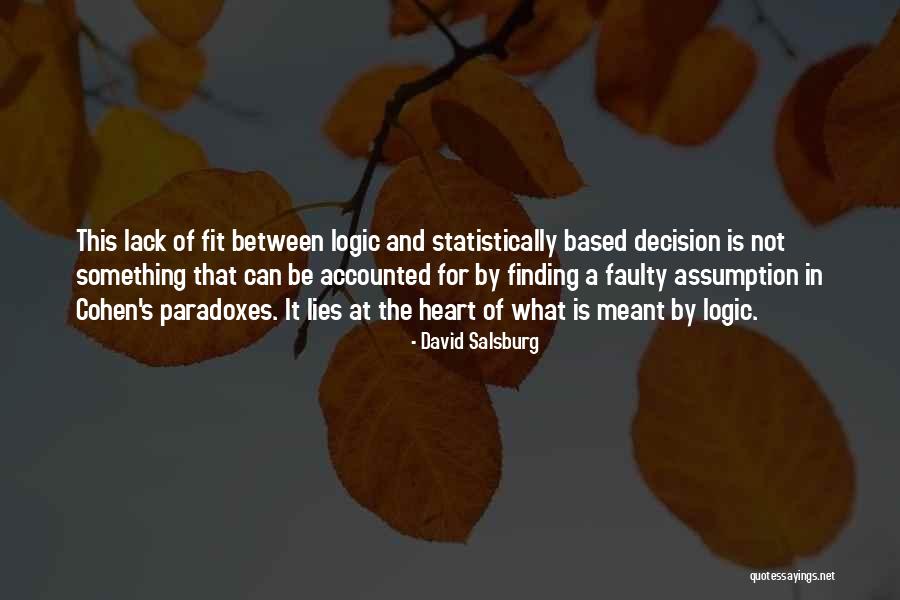
This lack of fit between logic and statistically based decision is not something that can be accounted for by finding a faulty assumption in Cohen's paradoxes. It lies at the heart of what is meant by logic. — David Salsburg
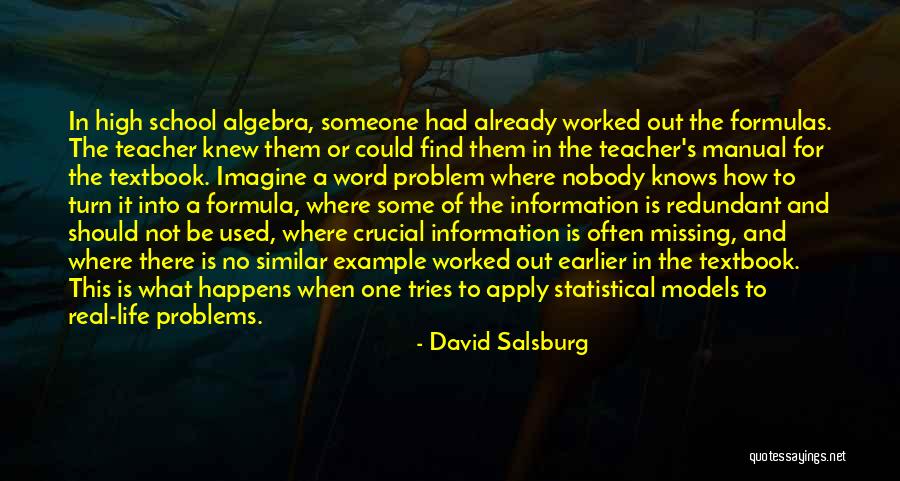
In high school algebra, someone had already worked out the formulas. The teacher knew them or could find them in the teacher's manual for the textbook. Imagine a word problem where nobody knows how to turn it into a formula, where some of the information is redundant and should not be used, where crucial information is often missing, and where there is no similar example worked out earlier in the textbook. This is what happens when one tries to apply statistical models to real-life problems. — David Salsburg
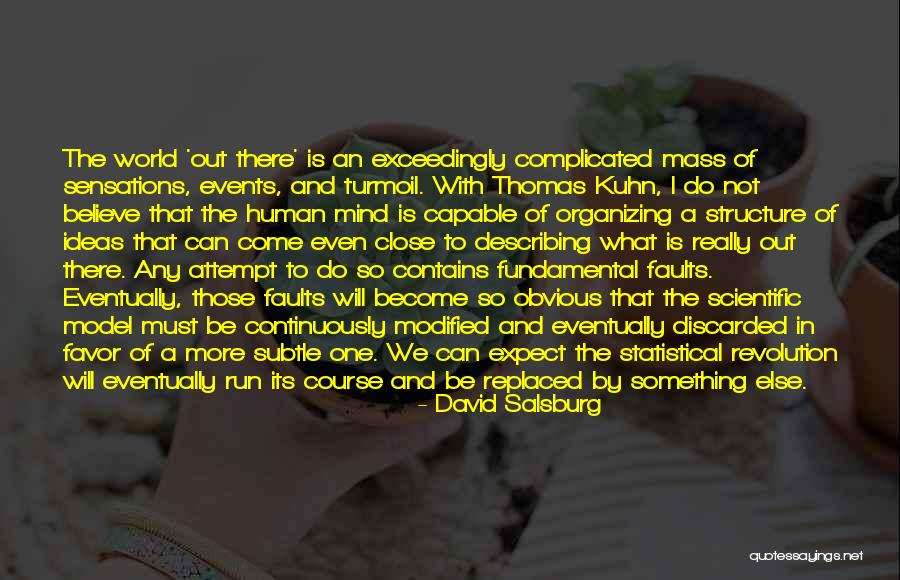
The world 'out there' is an exceedingly complicated mass of sensations, events, and turmoil. With Thomas Kuhn, I do not believe that the human mind is capable of organizing a structure of ideas that can come even close to describing what is really out there. Any attempt to do so contains fundamental faults. Eventually, those faults will become so obvious that the scientific model must be continuously modified and eventually discarded in favor of a more subtle one. We can expect the statistical revolution will eventually run its course and be replaced by something else. — David Salsburg
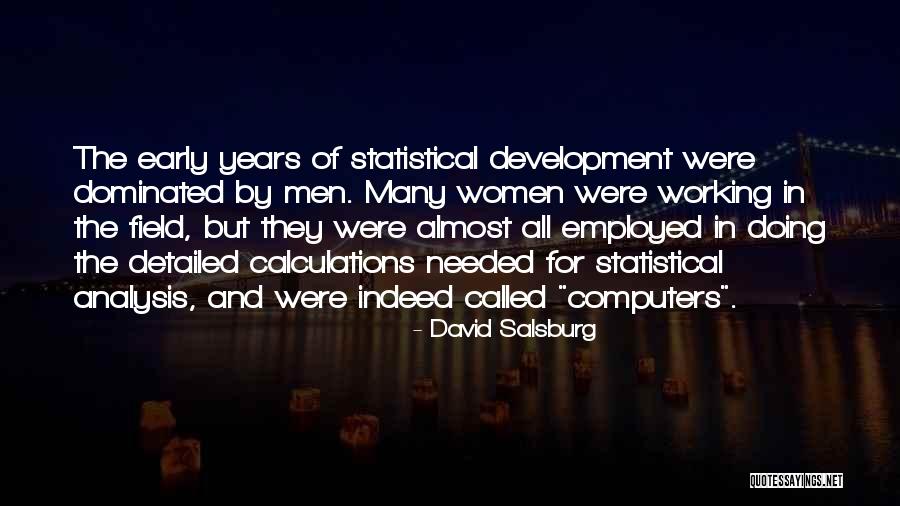
The early years of statistical development were dominated by men. Many women were working in the field, but they were almost all employed in doing the detailed calculations needed for statistical analysis, and were indeed called "computers". — David Salsburg
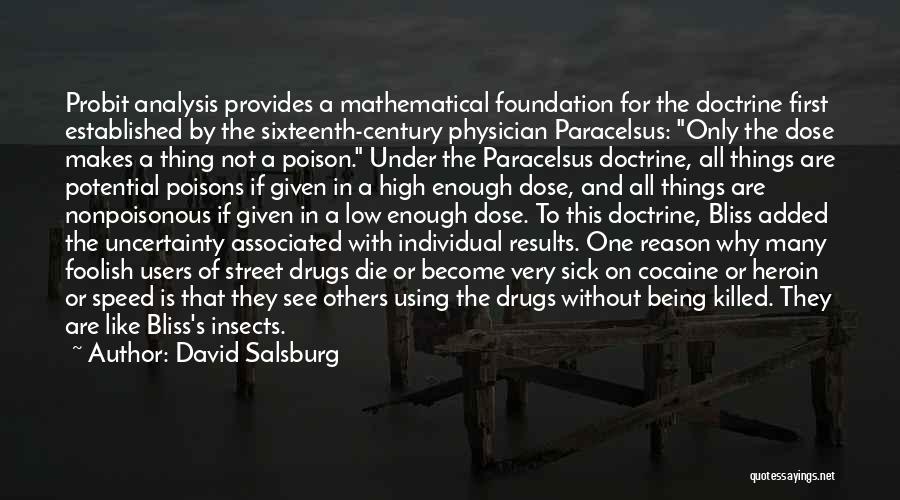
Probit analysis provides a mathematical foundation for the doctrine first established by the sixteenth-century physician Paracelsus: "Only the dose makes a thing not a poison." Under the Paracelsus doctrine, all things are potential poisons if given in a high enough dose, and all things are nonpoisonous if given in a low enough dose. To this doctrine, Bliss added the uncertainty associated with individual results. One reason why many foolish users of street drugs die or become very sick on cocaine or heroin or speed is that they see others using the drugs without being killed. They are like Bliss's insects. They look around and see some of their fellow insects still alive. However, knowing that some individuals are still living provides no assurance that a given individual will survive. There is no way of predicting the response of a single individual. — David Salsburg

An automobile piston should be round; but this phrase means nothing unless there is a way to measure the roundness of a particular piston. — David Salsburg

What both paradoxes show is that decisions based on probabilistic arguments are not logical decisions. Logic and probabilistic arguments are incompatible... Jerry Cornfield justified the findings that smoking causes lung cancer by appealing to a piling up of evidence, where study after study shows results that are highly improbable unless you assume that smoking is the cause of the cancer. Is it illogical to believe that smoking causes cancer? — David Salsburg
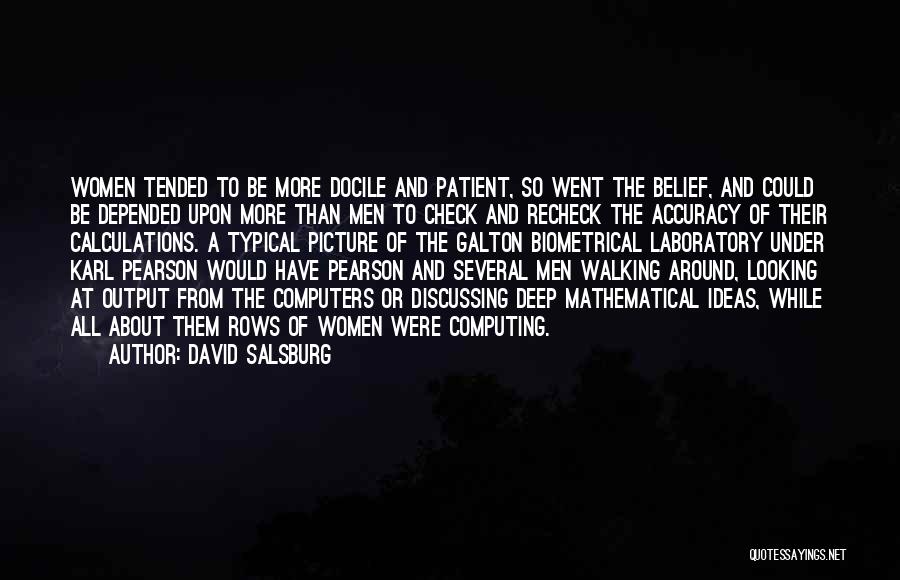
Women tended to be more docile and patient, so went the belief, and could be depended upon more than men to check and recheck the accuracy of their calculations. A typical picture of the Galton Biometrical Laboratory under Karl Pearson would have Pearson and several men walking around, looking at output from the computers or discussing deep mathematical ideas, while all about them rows of women were computing. — David Salsburg
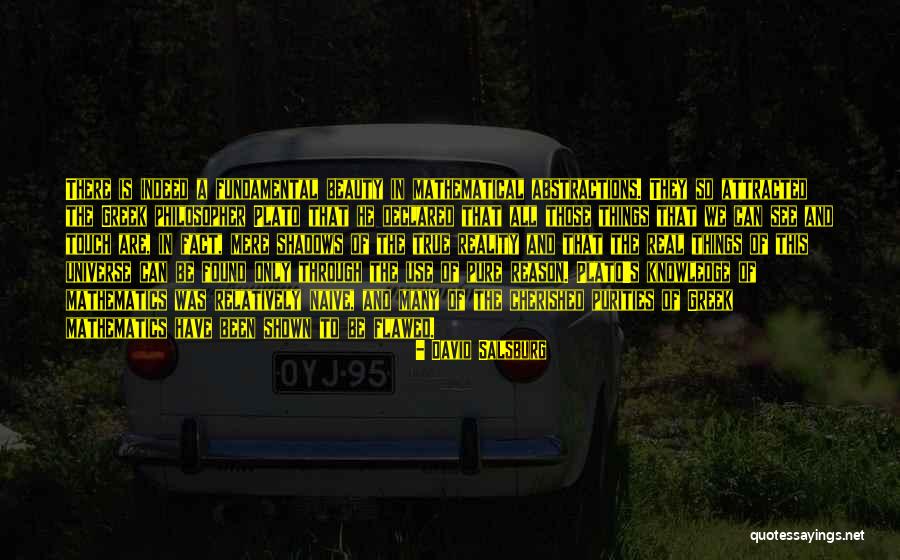
There is indeed a fundamental beauty in mathematical abstractions. They so attracted the Greek philosopher Plato that he declared that all those things that we can see and touch are, in fact, mere shadows of the true reality and that the real things of this universe can be found only through the use of pure reason. Plato's knowledge of mathematics was relatively naive, and many of the cherished purities of Greek mathematics have been shown to be flawed. — David Salsburg





